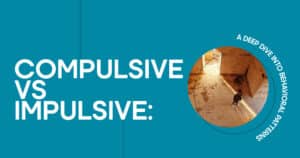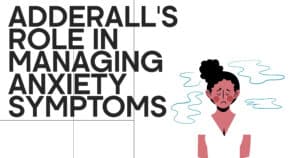Ever catch yourself replaying certain moments in your head, it could be some awkward thing you said years ago or a relationship that ended badly? You’re definitely not alone. Lots of people struggle with figuring out how to stop thinking about the past, especially when those memories hit hard. Regret, guilt, what-ifs, they can get loud, and once your brain gets hooked, it’s tough to shake it off.
You might think going over it again will bring clarity or peace, but it often does the opposite. Instead of living in the present, we end up dragging the past into everything. So the real question becomes: how do you let that past go?
It starts by digging into why we obsess over past events and then learning the practical tools to loosen their grip.
Why Do We Dwell on the Past?
Our minds crave answers. Especially when life throws curveballs or things don’t go as planned. We rewind the tape, trying to see where it all went wrong. That’s human. We want to understand it, maybe even change it, at least in our heads.
But that habit? It often turns into a trap. Here’s why we keep looping back:
| Habit | Description |
| Emotional leftovers | Deep feelings like shame, grief, or anger cling to certain memories. If those emotions never had a proper outlet, they’ll stick around. |
| Fear of what’s next | The past feels familiar. It might hurt, but it’s known. The future is scarier. So the brain hangs back where it feels safe |
| Regret | Possibly the hardest one. We picture better outcomes and punish ourselves for not choosing them. But no matter how many times we replay it, the past doesn’t budge. |
It’s okay to reflect but staying stuck there is what causes the trouble to start.
The Impact of Past Thoughts on Mental Health
If you’re serious about emotional healing, learning to calm these thoughts matters more than you might think.
- Anxiety increases: Reliving painful moments keeps your nervous system on edge. It’s like your brain thinks the danger never ended.
- Depression sneaks in: Getting lost in “what could’ve been” stops us from appreciating what is. Hope starts to feel out of reach.
- You feel frozen: It’s hard to take new steps when your focus is still locked on old pain. The past turns into a wall instead of a teacher.
When your energy is tied up in yesterday, it’s hard to build a better tomorrow. That’s why learning to step out of the loop is so important.

Identifying Triggers That Keep Us Stuck
These thoughts don’t just show up out of nowhere. They’ve usually got triggers, little emotional landmines that set the whole thing off. If you can spot what sets you off, you can start taking control back.
- People: Seeing someone from your past, even on social media, can send you spiraling. People are powerful triggers. Some bring back hurt. Others remind you of who you used to be.
- Places: Certain locations trigger your brain and make it remember. And it brings all those old feelings right back up.
- Dates and anniversaries: Our bodies sometimes remember before we do. Birthdays, holidays, or just “that time of year” can hit harder than expected.
These triggers have patterns. And when you recognize the pattern, you’re not caught off guard. Maybe you prepare ahead, or avoid that meetup, maybe you schedule something comforting that day. Awareness doesn’t erase the trigger, but it puts you back in charge.
Mindfulness Techniques to Stay Present
One of the most powerful ways to do that is through mindfulness techniques. It involves focusing on tuning in to now, not yesterday.
Try these when your mind starts drifting backward:
- Deep breathing. Doesn’t get more basic than this. Slow inhale, even slower exhale. It signals your body to relax..
- Grounding. Look around. Say five things you see. Four you hear. Three you can touch. You’re not trying to fix anything, you’re just noticing. And that’s enough to interrupt the cycle.
- Body scan. Sit still and check in, head to toe. Where are you tense? Where are you relaxed? Just noticing brings you back to the present moment.
These might sound simple, but they work. They give you a way to shift your focus, to press pause on the mental replay. And the more often you practice, the quicker your brain starts recognizing that now is where the peace lives.
Practicing Self-Compassion and Forgiveness
If you want real, lasting emotional healing, you have to learn to treat yourself like someone you care about.
And that means letting go. Not because it didn’t matter, but because carrying it forever will crush you. Here’s how to start:
| What to Do | Description |
| Write to yourself | Write a letter where you own what happened, and then offer yourself forgiveness. It’s private, it’s yours, and it helps. |
| Say some kind words | Call them positive affirmations, self-talk, whatever. You like “I’m allowed to move on,” or “I did the best I could then.” Repeating them regularly rewires how you think. |
| Self-compassion meditation | These are everywhere online, gentle guided practices that blend breathing with kind awareness. They’re not magic, but they’re close. |
Forgiveness doesn’t mean you’re excusing what happened. It just means you’re not letting it control you anymore. And that’s a big deal.
Creating a Positive Future Outlook
Moving forward means you stop thinking about the past. But you also need something to move toward. If you’re always looking behind you, you’ll never notice what’s ahead. The future might feel uncertain, but it’s still yours to shape.
Here’s how you can start leaning into what’s next:
- Set small goals. You don’t need a five-year plan. Just one thing that feels good to work toward. It might be reaching out to an old friend, picking up a new hobby, or even just creating a morning routine that feels better.
- Gratitude works. Start with one or two things each day. Maybe it’s a warm shower, maybe it’s your pet, maybe it’s coffee. This tiny shift changes your focus and helps loosen the grip of the past.
- Visualize what’s possible. A real mental picture of you, feeling grounded, lighter, free of all that emotional baggage. Imagining that version of yourself creates something to aim for. It plants seeds.
None of this happens overnight. But once you’ve consistently stuck to one or two, something shifts inside. That’s how overcoming rumination begins.
Move on From Past Trauma at California Mental Health
Sometimes, no matter how much inner work you do, things still feel heavy. If that’s where you are, it doesn’t mean you’re weak. It means you need support, and that’s okay.
At California Mental Health, we’re all about meeting you where you are. We get that letting go of regrets and past trauma isn’t easy. That’s why our team of therapists takes a compassionate, real-world approach to helping you move forward.
Whether you’re interested in cognitive behavioral therapy, mindfulness work, or just someone who listens without judgment, we’ve got your back. We don’t do cookie-cutter care. We do human connection, because healing should feel human.
If the past still feels louder than your present, contact California Mental Health today. We believe in your ability to heal, and we’ll walk with you every step of the way.

FAQs
How can letting go of regrets improve emotional healing and help in living in the present?
When you stop holding onto regret, it’s like removing a weight from your shoulders. You stop wasting emotional energy on things you can’t change and start giving it to what’s happening now.
What mindfulness techniques are effective for overcoming rumination about the past?
The simplest ones often help the most. Try slow breathing, naming things around you, or doing a full body check-in. These pull you out of your head and into the now.
How does cognitive behavioral therapy assist in letting go of regrets and focusing on the present moment?
CBT helps you catch those spiraling thoughts, challenge them, and replace them with more balanced ones. It teaches you how thoughts shape feelings, and how you can shift both.
What are some self-compassion exercises that aid in emotional healing and reducing negative thoughts about past events?
Try writing a note to yourself where you show understanding, or use gentle meditations and self-compassion exercises that remind you it’s okay to be imperfect. They soften self-judgment.
Can positive affirmations support mindfulness techniques and help in living in the present by reducing rumination?
Positive affirmations reinforce what you’re working toward. When you repeat kind messages to yourself during mindfulness, it helps your brain feel safer in the now.







